Taking a Vacation Posted by sasha on Sep 2, 2012 in Culture, Vocabulary
September is here, which means the summer holiday (暑假 – shǔ jià) has come to an end, and children all around the world are going back to school. Luckily for Chinese students, there’s another holiday coming up in just a few short weeks. As a matter of fact, this year there are TWO holidays back to back – Mid-Autumn Festival (中秋节 – zhōng qiū jié) and National Holiday (国庆节 – guó qìng jié). As such, many people in China are already planning a vacation (假期 – jià qī) for the holiday week. Some will return to hometowns to visit family, some will head for the sun and fun of places like Hainan (海南 – hǎi nán) and Xiamen (厦门 – xià mén), and others will get out of dodge and escape the madness of traveling in China during a big holiday by heading abroad. I fall into the latter category, as I’m planning a trip to Bali (巴厘岛 – bā lí dǎo) to visit a friend, relax on the beach, and do some hiking/water sports. Talking about vacations is one of the most fun things to do when learning a language, so here are some important words and phrases related to planning vacations in Chinese:
Transportation:
- buy a ______ ticket (买______票 – mǎi _____ piào)
- airplane (飞机 – fēi jī)
- train (火车 – huǒ chē)
- bus (公共汽车 – gōng gòng qì chē)
- rent a car (租车 – zū chē)
Accommodation:
- hotel (旅馆 – lǚ guǎn; 饭店 – fàn diàn; 酒店 – jiǔ diàn)
- guesthouse (宾馆 – bīn guǎn)
- youth hostel (青年旅舍 – qīng nián lǚ shě)
- book a room (预订房间 – yù dìng fáng jiān)
- single room (单间 – dān jiān)
- double room (双人间 – shuāng rén jiān)
- deluxe room (豪华房间 – háo huá fáng jiān)
- Do you have _______? (你们有_____吗?- nǐ men yǒu _____ ma?)
- a free room (空房 – kòng fáng)
- 24-hour hot water (24小时热水 – Èr shí sì xiǎo shí rè shuǐ)
- air conditioning (空调 – kòng tiáo)
- WiFi (无线上网 – wú xiàn shàng wǎng)
- a safe (保险柜 – bǎo xiǎn guì)
Traveling Styles:
- backpacking (挑运 – tiāo yùn); backpacker (背包客 – bèi bāo kè)
- independent travel (自助游 – zì zhù yóu)
- tour group (旅游团 – lǚ yóu tuán)
Activities:
For the fitness lovers:
- hiking (徒步旅行 – tú bù lǚ xíng)
- sightseeing (游览 – yóu lǎn)
- go swimming (游泳 – yóu yǒng)
- cycling (骑自行车 – qí zì xíng chē)
- mountain climbing (爬山 – pá shān)
For those who want to chill out:
- relax (放松 – fàng sōng)
- shopping (购物 – gòu wù)
- massage (按摩 – Àn mó)
- go to the beach (去沙滩 – qù shā tān)
- take photos (拍照 – pāi zhào)
Discussion:
Now, try to put some of these new words and phrases to use with these questions. Leave your comments here to practice!
Your next vacation (你的下个假期 – nǐ de xià gè jià qī):
- Where do you want to go? (你想去哪里?- nǐ xiǎng qù nǎ lǐ?)
- How will you go? (你怎么去?- nǐ zěn me qù?)
- Where do you want to stay? (你想住在哪里? – nǐ xiǎng zhù zài nǎ lǐ?)
- What do you want to do? (你想干什么?- nǐ xiǎng gàn shén me?)

Build vocabulary, practice pronunciation, and more with Transparent Language Online. Available anytime, anywhere, on any device.
About the Author: sasha
Sasha is an English teacher, writer, photographer, and videographer from the great state of Michigan. Upon graduating from Michigan State University, he moved to China and spent 5+ years living, working, studying, and traveling there. He also studied Indonesian Language & Culture in Bali for a year. He and his wife run the travel blog Grateful Gypsies, and they're currently trying the digital nomad lifestyle across Latin America.



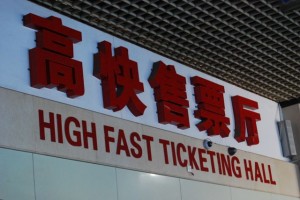
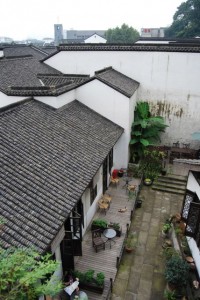
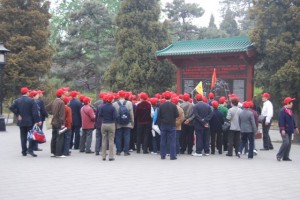

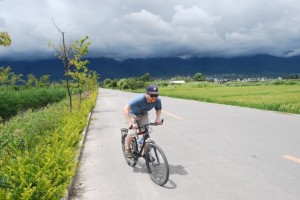
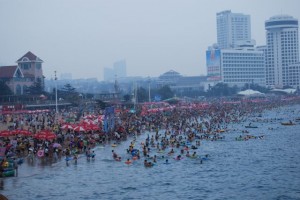

Comments:
nachiketa saha:
Thanks to both of you, Sasha and Allan for your wonderful effort to teach us some essential words and sentences in Mandarin. I don’t find the necessary time to delve deep into the subject but with your help I can, at least, satisfy my desire to learn something in that language of a country which I would like to visit some day in the future. You know, hope springs eternal……I know German and teach the language to earn some money which will help me to make my future trip to China.I wish “Money in Mandarin” a great success.
nachiketa
Victor:
“Where do you want to go? (你想去哪里?- nǐ xiǎng qù nǎ lǐ?)”
This is Taiwanese Mandarin. In Beijing, they say 哪儿 (nǎr), not 哪里.
sasha:
@Victor You are right about the Beijing way, but it’s not true that 哪里 is a Taiwanese only phrase. I’ve traveled extensively in Mainland China, and everywhere BUT Beijing uses 哪里 to mean “where.” I purposefully exclude the 儿 sound when teaching phrases like this, as you will only hear it in Beijing. It’s more useful to learn phrases that are common all across the country, as opposed to the strictly Beijing “r” sound.